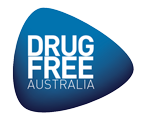This mail has been sent to all Australian Health and Shadow Minister.
With the constant noise being made about not only misinformation, but more concerningly, disinformation, it is imperative that your support staff and researchers become aware of the well spun, and on growing occasions patently false information being promoted by the worldwide Cannabis industry.
Drug Free Australia kindly requests your department to review this very important paper and also the 77 references and the 5 related articles.
Cannabidiol (CBD) products for pain: ineffective, expensive, and with potential harms https://www.jpain.org/article/S1526-5900(23)00582-5/fulltext <https://www.jpain.org/article/S1526-5900(23)00582-5/fulltext>
Published: October 18, 2023DOI:https://doi.org/10.1016/j.jpain.2023.10.009 <https://doi.org/10.1016/j.jpain.2023.10.009 <https://doi.org/10.1016/j.jpain.2023.10.009> >
Highlights
CBD products may have varying amounts of CBD, varying from none to much more than advertised.
CBD products may contain other chemicals than CBD, some of which may be harmful.
16 RCTs for pain used pharmaceutical CBD in oral, buccal/sublingual, and topical forms.
15 of the 16 RCTs were negative: no greater pain-relieving effect for CBD than for placebo.
Meta-analyses link CBD to increased rates serious adverse events and hepatotoxicity.
Abstract
Cannabidiol (CBD) attracts considerable attention for promoting good health and treating various conditions, predominantly pain, often in breach of advertising rules. Examination of available CBD products in N America and Europe demonstrate that CBD content can vary from none to much more than advertised, and that potentially harmful other chemicals are often included. Serious harm is associated with chemicals found in CBD products, and reported in children, adults, and the elderly. A 2021 International Association for the Study of Pain task force examined the evidence for cannabinoids and pain but found no trials of CBD. Sixteen CBD randomised trials using pharmaceutical supplied CBD or making preparations from such a source and with pain as an outcome have been published subsequently. The trials were conducted in 12 different pain states, using three oral, topical, and buccal/sublingual administration, with CBD doses between 6 and 1600 mg, and durations of treatment between a single dose and 12 weeks. Fifteen of the 16 showed no benefit of CBD over placebo. Small clinical trials using verified CBD suggest the drug to be largely benign; while large scale evidence of safety is lacking there is growing evidence linking CBD to increased rates of serious adverse events and hepatotoxicity. In January 2023, the FDA announced that a new regulatory pathway for CBD was needed. Consumers and health care providers should rely on evidence-based sources of information on CBD, not just advertisements. Current evidence is that CBD for pain is expensive, ineffective, and possibly harmful.
Perspective
There is no good reason for thinking that CBD relieves pain, but there are good reasons for doubting the contents of CBD products in terms of CBD content and purity.
77 important References for review.
5 Related Articles for review
Kind Regards
Herschel Baker
Queensland Director
Drug Free Australia
Prevent. Don't Promote Drug Use
M: 0412988835
E: This email address is being protected from spambots. You need JavaScript enabled to view it.
W: https://drugfree.org.au/

